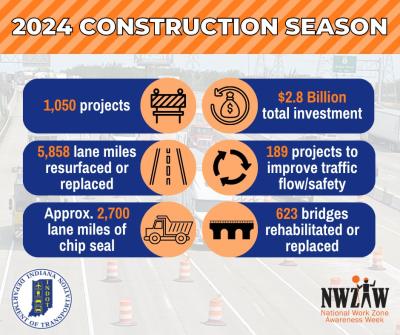FORT MYERS, FL (AP) Palm trees.
They’re everywhere in southwest Florida –– the ultimate arboreal symbol of the good life in the subtropics.
Developers plunk them into the ground by the hundreds because they’re adaptable for a lot of uses and say “tropical paradise” to most people.
And they’re big business for growers on Pine Island, the only place locally where climate and land prices make the industry feasible on a large scale. Other nurseries may import their trees but still sell them in large numbers to builders and homeowners.
Demand stays high because people expect palm trees when they live in Florida and developers are only too happy to oblige.
“Obviously, it’s important to a lot of folks” to have palm trees on their property, said Robert Olinger, a certified arborist and director of landscape operations for Bonita Springs-based WCI Communities, a major builder of upscale homes.
A big development such as WCI’s Sun City Fort Myers, now being built along Colonial Boulevard east of Interstate 75, will have 700 to 800 palms –– approximately 30 percent of the total number of trees, Olinger said.
But for all their popularity, palm trees can cause problems as well:
• Thieves sometimes pluck them out of the ground almost as soon as they’re planted.
• Door-to-door buyers offer homeowners sucker prices for a palm, leave a hole in the yard, then resell the tree for thousands of dollars.
• You can’t trim them from the top, so watch out if they’re under power lines.
• Overzealous landscapers whack off green fronds, weakening the tree and exposing it to the ravages of something called the giant palm weevil, which can kill in a few weeks.
But palm trees are generally compatible with the local environment if treated properly –– and first and foremost they’re a symbol.
“People come to South Florida with a romantic view that Florida’s covered with palms and part of the Caribbean basin, and climactically it is,” said Rad Hazen, general manager of Soaring Eagle Nursery on Pine Island, a wholesaler which sells approximately 42 species. “It’s part of their whole romantic attachment for the area.”
Landscapers have a more practical affection for the trees.
“Palm trees lend themselves to many urban situations,” Olinger said. One of their most valuable assets is that they grow straight up so they lend themselves to areas where there isn’t much elbowroom.
That’s not necessarily true of other trees, he said. “If you plant a live oak in a really confined area, you’ve got the potential of branches and leaves coming into contact with the surrounding homes or landscape features.”
Aesthetically, some palms lend themselves for specific uses, Olinger said. “In a pool, a water feature, a beach, anywhere you’re encompassing an aquatic setting, I always think the coconut palm lends itself: the curvature, the sweep of the palm.”
Where privacy is the goal, he said, arecas or everglades palms planted close together are a good bet. “They eliminate not only noise but visuals.”
Not all palm trees are okay in every use, however.
“It depends on the area you live in,” said Marybeth Shirey, co-owner of Riverland Nursing & Landscaping on Palm Beach Boulevard in east Fort Myers. “Some are a lot more cold hardy” but more sensitive trees don’t thrive east of I-75 where winters are a bit harsher.
Royal and coconut palms are examples of popular trees that generally aren’t seen east of I-75 because they sometimes don’t survive the winter, she said.
A little tender loving care can keep a cold-sensitive tree alive, Shirey said. “I have a silver bismarck and believe it or not, when Christmas is over I put my Christmas lights on it, and cover it when it’s going to be cold.”
For those who want to play it safe, go with varieties that can survive anywhere in southwest Florida, said Stephen Brown, a horticulture agent with the Lee County Extension Service.
Washingtonians, sabals, queens and Chinese fan palms are good choices, he said. Hard as it can be to buy and maintain the right palm tree, selling one can be even more complicated, said Norm Easey, Sarasota-based executive director of the Florida chapter of the International Society of Arboculture.
“There’s nothing wrong with selling plant material out of your yard,” he said. “But I talk to folks who tell me about a guy who came by, offered me $50, came and got the tree, and left me a hole. I guess it’s buyer –– or in this case seller –– beware.”
Easey advises people to get quotes from competitors or look up the wholesale value of the tree –– a fair price is about half of that, which can run into the thousands of dollars for a large Canary Island date palm.
Also, he said, make sure the buyer replaces the soil he takes and resods. Another issue: some buyers will pay and then leave the tree in the ground until they have a customer who wants it, so make sure you’re clear on when it will actually be removed.
Some people who want trees, unfortunately, don’t wait for a willing seller –– they just steal what they want right out of the ground.
Lee County sheriff Lt. Ron Curtis, who runs the construction site crimes unit, said plant theft is typically “double dipping” by a shady landscaping contractor who spies a newly-installed plant, takes it and uses it at a different construction site.
“That behavior is rampant in the construction industry,” not just for plants but for other building materials, he said.
Phil Baker, plant-engineering supervisor of The News-Press, said the newspaper recently was the victim of some especially brazen tree thieves at the main office on Dr. Martin Luther King Jr. Boulevard in Fort Myers.
“We put ’em in and before we got our security sensor in, one of the guys came in at 6 o’clock and noticed there was a white pickup truck doing something with a tree. He thought it was landscapers. We come back later and say, ’Hey, we’ve got holes here.’”
The thieves took three double adonidia palms along with some smaller plants, Baker said, “a thousand bucks worth of work.”
Today's top stories














